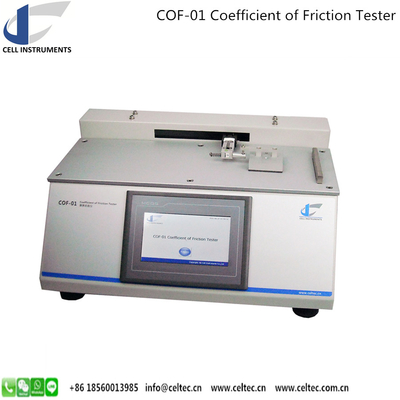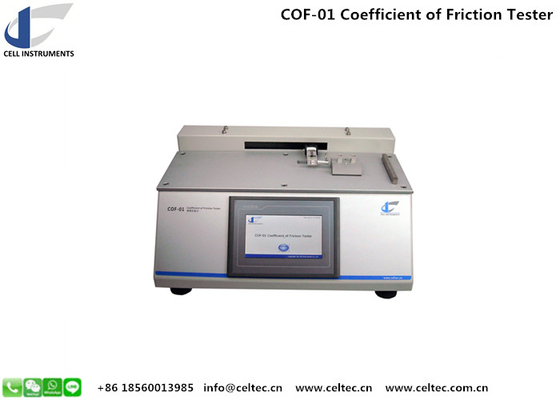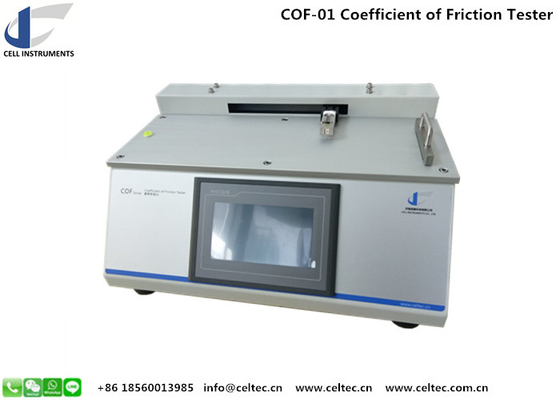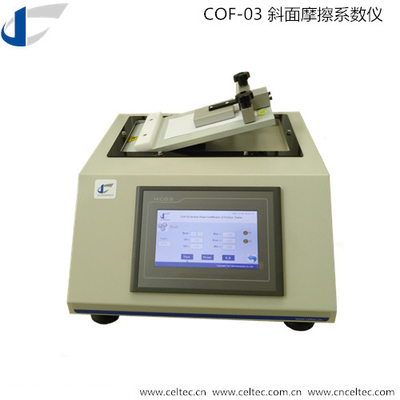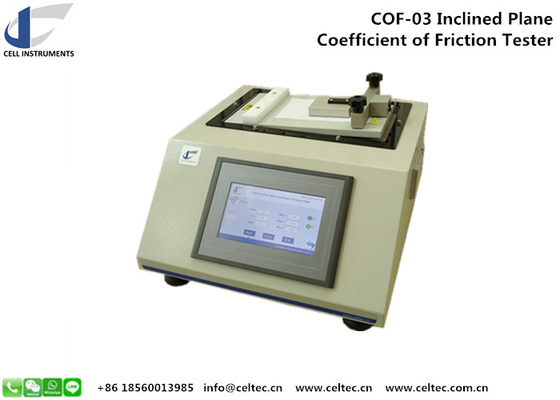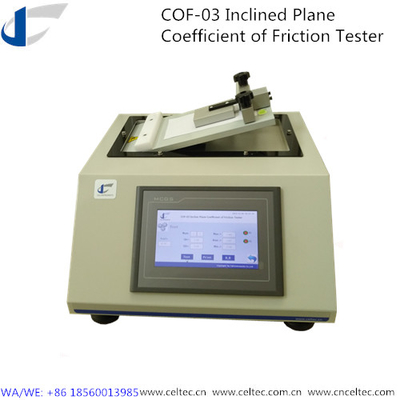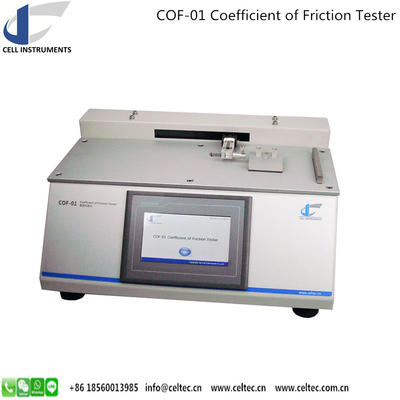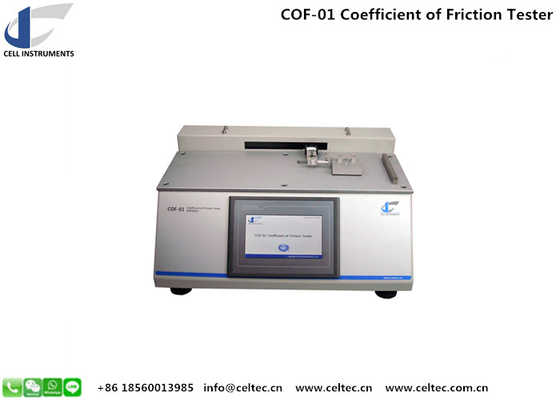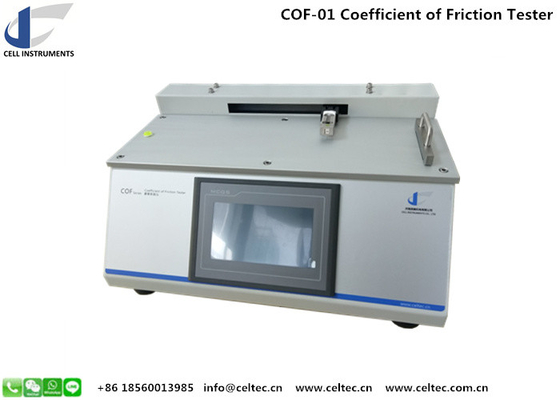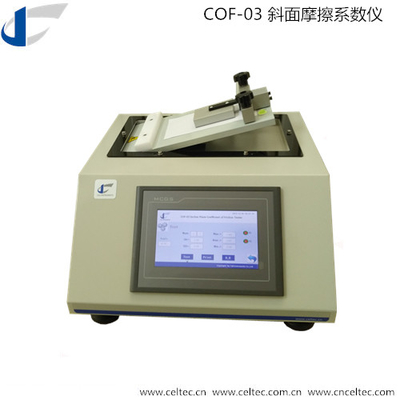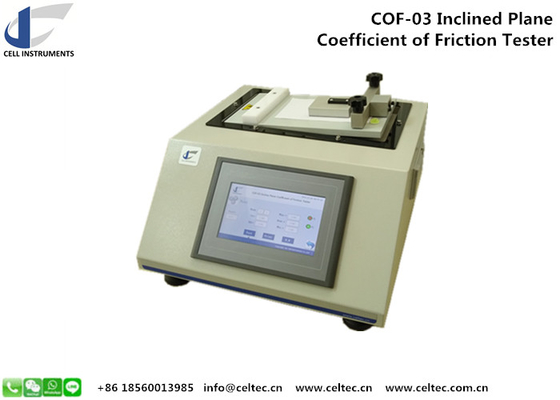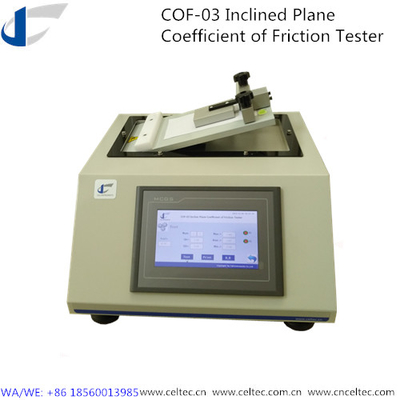Thin Film Friction Coefficient Tester Rubber And Plastic Shoes Friction Coefficient Tester Instrument
| Power | Electronic | Usage | Paper Testing Instrument,Textile Testing Instrument,Other,Plastic Testing Machine |
|---|---|---|---|
| Standard | ISO8295,ASTM D1894 | Warranty | 12 Months |
| Product Name | Packaging Materials Coefficient Of Friction Tester | Function | Kinetic And Static Coefficients Of Coefficient Of Friction Test,coefficient Friction Tester,detecting Dynamic Frition Coefficient |
| Power Supply | 110~220V |
Thin Film Friction Coefficient Tester | High-Precision Static and Kinetic Friction Measurement
Introduction to Thin Film Friction Coefficient Tester
![]()
The Thin Film Friction Coefficient Tester is an advanced laboratory instrument designed to accurately measure the static and kinetic coefficients of friction of plastic films, sheets, rubber, paper, and other flexible packaging materials. This precision testing device is essential for evaluating the slip properties of materials used in packaging, printing, and industrial applications. With its high sensitivity and compliance with international testing standards, the Thin Film Friction Coefficient Tester provides reliable and repeatable results for R&D, quality control, and production optimization.
Importance of Friction Coefficient Testing
The coefficient of friction (COF) is a critical parameter in material testing, determining how materials interact under sliding conditions. Measuring COF is essential for assessing material performance in packaging, ensuring optimal handling, processing, and transportation efficiency. Industries such as food packaging, pharmaceuticals, flexible electronics, and rubber manufacturing depend on COF testing to ensure product quality and compliance with industry standards. The Thin Film Friction Coefficient Tester helps manufacturers identify issues such as excessive slip or adhesion, leading to improved material formulation and production processes.
Test Principle of Thin Film Friction Coefficient Tester
The Thin Film Friction Coefficient Tester operates based on a simple yet effective principle. Two material samples are placed in contact: a long strip sample is fixed on a flat surface, while a smaller squared sample is positioned on top and subjected to force via a standardized sled. As the sled moves at a controlled speed, the instrument measures the frictional force between the two surfaces, calculating both static and kinetic coefficients of friction.
-
Static Friction Measurement: Measures the force required to initiate movement between two surfaces.
-
Kinetic Friction Measurement: Determines the force needed to maintain movement at a constant velocity.
This precise methodology ensures accurate and repeatable testing, enabling users to optimize material properties for enhanced performance.
Technical Features of Thin Film Friction Coefficient Tester
-
Advanced PLC Control & Touchscreen Interface: Provides an intuitive and user-friendly operation, allowing for quick test setup and execution.
-
Real-Time Data Display & Analysis: Offers immediate visualization of test results, including graphical representations and trend analysis.
-
Static and Kinetic Friction Testing Capability: Accurately measures both static and kinetic coefficients of friction in a single test.
-
Compliance with International Standards: Ensures accuracy and reliability by conforming to ASTM D1894, ISO 8295, TAPPI T816, and GB 10006.
-
Automated Data Processing & Curve Superposition: Enhances analysis by overlaying multiple test results for comparative evaluation.
-
RS232 Interface & Optional Software: Enables data export and integration with external systems for further analysis.
-
Microprinter for Instant Report Printing: Facilitates quick documentation of test results.
Technical Specifications of Thin Film Friction Coefficient Tester
| Parameter | Specification |
|---|---|
| Load Cell | 5 N |
| Accuracy | 0.5% F.S. |
| Stroke | As Required |
| Sled Weight | 200 g (Standard), 63.5mm x 63.5mm (Customizable) |
| Test Speed | 100 mm/min (ISO), 150 mm/min (ASTM) |
Applications of Thin Film Friction Coefficient Tester
The Thin Film Friction Coefficient Tester is widely used in various industries for material testing and quality control:
-
Flexible Packaging Industry: Ensures films and laminates have suitable slip properties for automated processing and handling.
-
Printing & Coating Industry: Evaluates surface characteristics for enhanced print quality and adhesion performance.
-
Paper & Board Manufacturing: Measures frictional properties of paper-based materials for improved product consistency.
-
Rubber & Plastic Production: Tests polymer sheets and films for optimal formulation and usability.
-
Pharmaceutical & Medical Packaging: Assesses the slip properties of blister packs and medical-grade films to ensure ease of use and safety.
Why Choose the Thin Film Friction Coefficient Tester?
-
High Accuracy & Repeatability: Ensures precise results with minimal variability.
-
Easy Operation & Automation: Reduces human error and enhances efficiency with an intuitive interface.
-
Robust Construction & Longevity: Built with durable materials for long-term laboratory use.
-
Customizable Test Parameters: Adapts to diverse material testing needs with adjustable stroke and sled weight.
-
Comprehensive Data Analysis Tools: Offers in-depth insights into material properties with advanced software support.
Compliance with International Standards
The Thin Film Friction Coefficient Tester adheres to globally recognized test methods, ensuring its suitability for compliance testing and certification:
![]()
-
ASTM D1894 – Standard Test Method for Static and Kinetic Coefficients of Friction of Plastic Film and Sheeting.
-
ISO 8295 – Determination of the Coefficient of Friction for Plastic Films and Sheets.
-
TAPPI T816 – Testing method for measuring the friction of paper and board materials.
-
GB 10006 – Chinese national standard for COF testing of plastic films.



